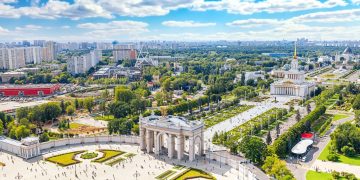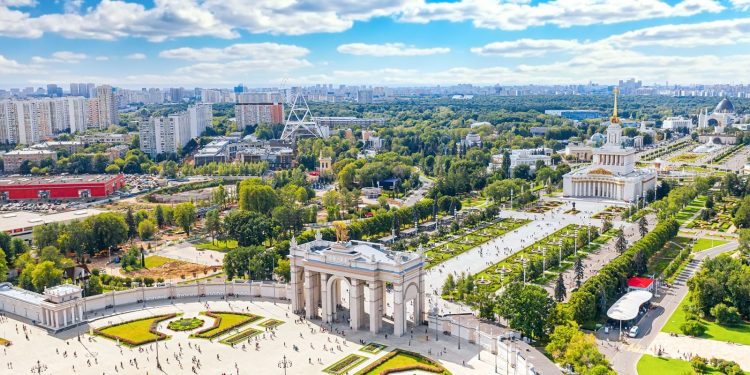#Agriculture #ArtificialIntelligence #FarmingTechnology #SustainableAgriculture #PrecisionFarming #FutureAgriculture #Innovation #ClimateAdaptation
At the forefront of this technological frontier is Dr. Anastasia Grecheneva, shedding light on the significance of AI innovations in agriculture. She emphasizes their role in enhancing productivity, improving product quality, reducing environmental impact, and optimizing resource management.
In her presentation, Dr. Grecheneva highlights the immense potential of AI research in agriculture, with ongoing endeavors at the prestigious “Future Agriculture Technologies” research center. Their commitment extends beyond theoretical developments, actively implementing innovative agricultural solutions today.
The integration of artificial intelligence (AI) into agriculture represents a transformative shift in farming practices worldwide. At the recent “Science and Universities” thematic day held at the renowned VDNKh, attendees were introduced to cutting-edge AI technologies poised to revolutionize the agricultural landscape.
Among the standout presentations was the lecture titled “Artificial Intelligence Technologies in Agriculture” delivered by Dr. Anastasia Grecheneva, an esteemed researcher at the K.A. Timiryazev Russian State Agrarian University and the Scientific Center for “Future Agriculture Technologies.” Dr. Grecheneva’s insights captivated the audience, sparking a keen interest in the future of AI in farming.
Central to Dr. Grecheneva’s discourse was the role of AI in addressing key challenges facing modern agriculture. She outlined various applications, including the utilization of computer vision for crop monitoring, machine learning algorithms for predictive analysis, and decision support systems for precision farming.
The potential of AI in agriculture extends far beyond mere automation; it represents a paradigm shift towards sustainable and efficient farming practices. Dr. Grecheneva emphasized the multifaceted benefits of AI integration, from enhancing productivity and product quality to mitigating environmental impact and optimizing resource allocation.
One of the most compelling aspects of Dr. Grecheneva’s presentation was her discussion on the ongoing research initiatives at the “Future Agriculture Technologies” center. With a commitment to practical implementation, Dr. Grecheneva highlighted the center’s efforts to translate theoretical advancements into tangible solutions for farmers.
Looking ahead, Dr. Grecheneva expressed optimism about the future of AI in agriculture. She underscored the importance of ongoing research and development efforts in harnessing the full potential of AI to address the evolving needs of the agricultural sector. With initiatives like those at the “Future Agriculture Technologies” center, the integration of AI promises to usher in a new era of sustainable and resilient farming practices.
The presentation at VDNKh served as a testament to the transformative power of AI in agriculture. By embracing innovation and leveraging the capabilities of AI technologies, farmers, agronomists, and agricultural engineers can enhance efficiency, productivity, and sustainability across the agricultural value chain.































